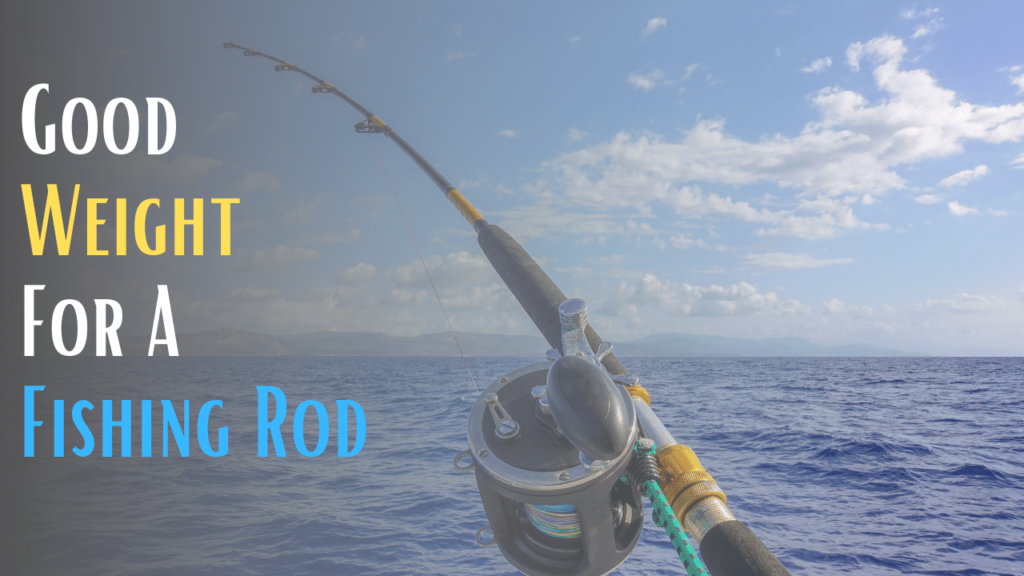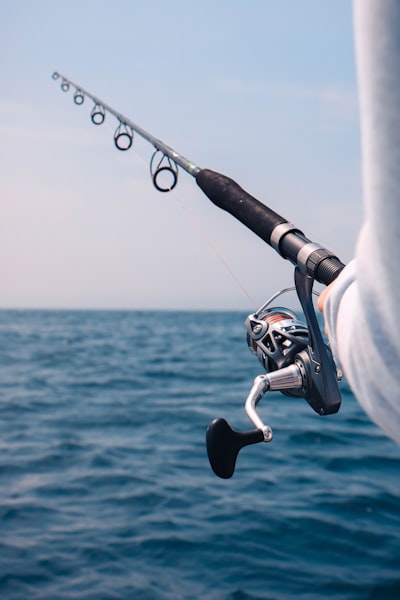Have you ever wondered what makes a fishing rod just right for catching fish? Well, you’re not alone! Fishing can be a lot of fun, but it’s important to have the right equipment.
In this guide, we’re going to talk about something called ‘rod weight.’ It’s like choosing the perfect tool for a job.
Let’s dive in and find out what is a good weight for a fishing rod that’ll help you catch more fish!
Photo by Mathieu Le Roux on Unsplash
Table of Contents
Different Fishing Rod Weights
The weight of a fishing rod, often referred to as its “power,” indicates the rod’s resistance to bending. It ranges from ultra-light to heavy, with several categories in between. The weight you choose depends mainly on the type of fish you’re targeting and the fishing environment.
Comparison of Different Fishing Rod Weights:
| Rod Weight | Target Fish Species | Environment & Use Case | Lure Weight Range |
|---|---|---|---|
| Ultra-light | Small fish like panfish, trout | Ideal for freshwater fishing in streams and small ponds. Highly sensitive to detect subtle bites. | 1/32 – 1/8 oz |
| Light | Small to medium fish like crappie | Suitable for freshwater lakes and rivers. Provides a balance between sensitivity and strength. | 1/16 – 1/4 oz |
| Medium | Bass, catfish, medium-sized species | Versatile for both freshwater and light saltwater fishing. Can handle moderate fights from fish. | 1/4 – 1/2 oz |
| Medium-Heavy | Larger bass, smaller saltwater species | Muskies, large saltwater species | 3/8 – 3/4 oz |
| Heavy | Muskie, large saltwater species | Best for big game fishing in both freshwater and saltwater. Designed to handle the weight and fight of big fish. | 1/2 oz and above |
So, what weight is good?
The ideal weight of a fishing rod largely depends on the specific fishing scenario:
- For beginners or those targeting smaller fish in freshwater environments, an ultra-light to light rod is recommended.
- For versatile fishing experiences targeting a range of species, a medium rod is often the best choice.
- For anglers targeting larger fish or fishing in dense areas with lots of cover, a medium-heavy to heavy rod is more appropriate.
It’s essential to match the rod’s weight with the intended use case, target fish species, and the fishing environment to ensure the best results.

What is a good weight for a fishing rod in pounds?
The ideal fishing rod weight depends on a few factors. When choosing a rod, you’ll want to consider what type of fishing you plan to do and the size of the fish you’re targeting.
In general, a lightweight rod between 5-8 pounds is good for catching smaller fish like panfish, trout or bass. Light rods are easy to cast and sensitive to light bites. Anglers targeting bigger game fish often opt for medium or medium-heavy rods in the 10-20 pound range. Heavier rods provide more lifting power to fighting and landing larger fish.
Rod weight matters because you want the right balance of sensitivity and strength for the fish you’re pursuing. Ultra-light rods under 5 pounds lack the backbone for fighting larger fish but are great for finesse presentations to small species. On the flip side, heavy rods over 20 pounds may be overkill if you’re catching smaller fish most of the time.
You may aslo like to know: How To Store Fishing Rods In Garage? 2 best way to do!
Does fishing rod weight matter?
Yes, the weight of a fishing rod matters significantly. It determines the rod’s sensitivity, its ability to handle the fight from a fish, and the type of lures or bait you can use. Matching the rod’s weight with the intended use case, target fish species, and fishing environment ensures a successful and enjoyable fishing experience.
Conclusion
Choosing the right weight for a fishing rod is essential for a successful fishing experience. Considering the type of fish, the environment, and the lure weight, you can select a rod that enhances your chances of making a great catch. Remember, it’s always a good idea to consult with seasoned anglers or professionals at your local fishing store to get personalized advice.

